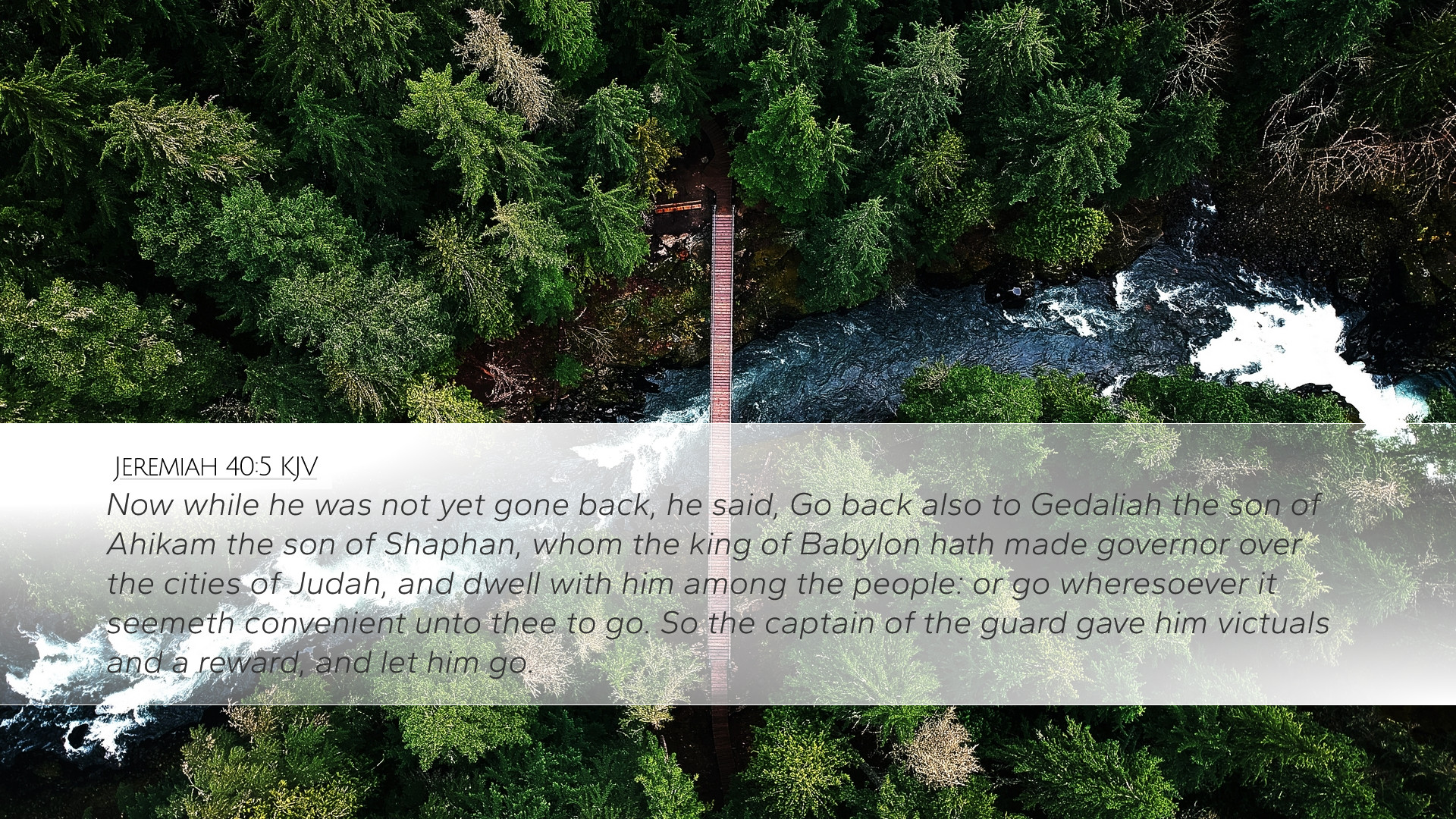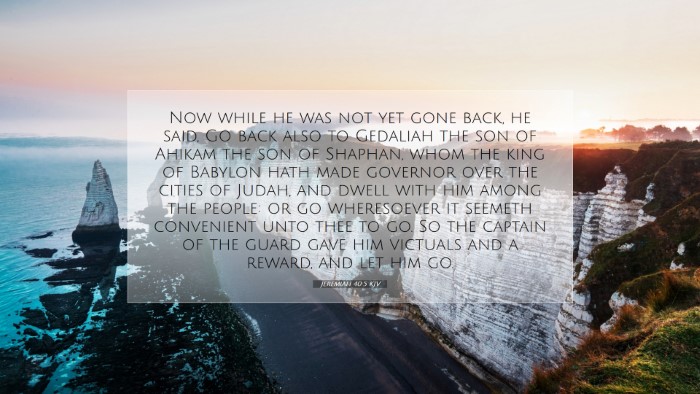Commentary on Jeremiah 40:5
Jeremiah 40:5 states: "But while he was not yet gone back, he said, Go back to Gedaliah the son of Ahikam, the son of Shaphan, whom the king of Babylon hath made governor over the cities of Judah, and dwell with him among the people: or go whithersoever it seemeth convenient unto thee to go." This verse marks a significant moment in the narrative of God's people during a period of great distress and upheaval.
Contextual Overview
This verse occurs in the aftermath of the Babylonian conquest of Jerusalem, where the prophet Jeremiah receives a clear instruction from God. Commentators note the crucial roles played by Gedaliah and Jeremiah in maintaining some semblance of order in a chaotic time.
Insights from Commentators
Matthew Henry
Matthew Henry highlights the appointment of Gedaliah as governor by Nebuchadnezzar and the implications of this leadership choice. He emphasizes:
- God's Providence: Henry notes that the appointment of Gedaliah demonstrates God's sovereignty, where amidst judgment, God provides a remnant with a leader.
- Appeal to Freedom: The exhortation to either dwell with Gedaliah or choose a path of personal convenience illustrates the balance of divine guidance and human agency.
Albert Barnes
Albert Barnes provides a detailed exposition of the context and meaning of this verse:
- Jeremiah's Role: Barnes points out that Jeremiah plays a crucial diplomatic role, providing counsel to those left in Judah. His direction to the man escaping from the Babylonian influence reflects a profound responsibility.
- Gedaliah’s Leadership: Barnes underscores the hope symbolized in Gedaliah’s leadership, portraying him as a stabilizing force amid despair.
- Implication of Choice: The freedom granted to the people underscores a theological point that while God has a plan, individuals still possess the power to make choices within that framework.
Adam Clarke
Adam Clarke provides additional cultural and historical insights into the events surrounding this verse:
- Historical Context: Clarke emphasizes the significance of the Babylonian exile and how significant figures like Gedaliah were a means through which God maintained a remnant of His people.
- Moral Responsibility: Clarke elaborates on the moral implications of the people prioritizing safety and life under Gedaliah’s authority, stressing the need for communal stability during turbulent times.
Theological Themes
This verse encapsulates several theological themes vital for pastoral and scholarly reflection:
- Divine Sovereignty and Human Responsibility: The duality of divine control and human choice raises significant questions for scholars regarding free will and God's overarching plans.
- Leadership in Crisis: Gedaliah’s government serves as a reminder of the types of leadership required to serve God’s people during a time of crisis.
- God’s Care for His People: In the worst of circumstances, God provides avenues of hope and restoration, reflecting His everlasting covenant with His people.
Conclusion
In Jeremiah 40:5, we see a profound intersection of divine guidance, human agency, and the ongoing narrative of God's faithfulness to His people. It challenges the readers, particularly pastors and theologians, to consider the implications of leadership, choice, and the providence of God in their contexts. This verse stands as a reminder that even in dire circumstances, faith and obedience to God’s instructions can lead to restoration and hope.


